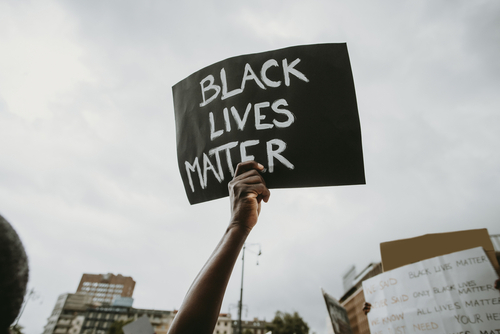Earlier this week President Biden signed the Inflation Reduction Act into law. This moment came after more than a year of negotiations, which resulted in the paring down of the once visionary piece of legislation. After a 16-hour-long vote-a-rama, filled with attempts by Republican Senators to harm immigrant communities and permanently end asylum at the southern border, the Inflation Reduction Act has passed the Senate.
The bill was subsequently passed in the House and signed by the president this week. All harmful immigration amendments were defeated, making for a “clean” piece of legislation.
This moment is met with celebration as we take stock of the historic climate and healthcare provisions anchoring the bill. These provisions will bring solutions to immigrant communities who are disproportionately impacted by climate change and a lack of access to affordable and quality healthcare in the years to come. However, there is a palpable tension between where the bill started, in both name and substance, and where it ended.
For many Black immigrants, the bill which the Biden Administration and Congress tout as a huge victory, will not have any impact on their day-to-day lives in the immediate. Both the healthcare and climate provisions don’t take effect until 2024 at the earliest. The Build Back Better bill which jolted our communities into action, with the hope of resounding life-altering immigration policy changes, was reduced to an Inflation Reduction Act, which by all economic measures will only have a negligible impact on inflation and cost of living for the average person in the U.S.
Before Sen. Joe Manchin’s infamous Fox News interview which effectively tanked all hopes of the Build Back Better Reconciliation package passing, there was an electrifying sense of momentum amongst immigrant communities in the effort to get a pathway to green cards included in the bill. The average person and even immigration advocates generally don’t know all that much about the complex senate procedures around Budgetary Reconciliation. But by the end of last year, advocates and many community members not only learned about this process that is otherwise shrouded in mystery, but they organized and managed to make immigration relief in the reconciliation bill a tangible goal.

From an obscure legislative strategy to one that had the backing of Congressional leadership and the President, our goal of getting green cards for our community was clear. Even after several biased and negative advisory opinions from the immigration prosecutor, turned Senate Parliamentarian, and divergent perspectives on the next steps within the immigration movement, our demands did not waiver. Some flew to Washington D.C. to march and have face-to-face conversations with lawmakers and others participated in actions in their local cities. The fervor and unyielding desire to secure permanent protections for our people continued, while Title-42 flights expelled thousands of Black migrants back to dangerous conditions. The horrific images of Border Patrol officers seemingly whipping Black migrants in Del Rio only intensified our resolve.
As with any fight within a centuries-old system built on anti-Blackness and white supremacy, our efforts and momentum, which surpassed the initial expectations of many, were quashed by the political games of a singular white man. The argument that immigration relief serves to protect people and provide them with a better quality of life rarely has any weight in a system built on abuse and exploitation.
In the case of the Build Back Better negotiations, we reduced ourselves to the workers, service providers, and economic pawns that this country so often sees our communities as. We held back on the multifaceted layers of our lives and provided economic arguments for why immigrants are essential to rebuilding a nation ravaged by the covid-19 pandemic. In our arguments, we omitted the fact that the very thing that is being “built back” was first built by Black and brown people. There is a specific kind of pain that comes with fighting for something you instinctively know is your right. You feel it on the molecular level, it is the pain of Black people who were descendants of the enslaved of this country asking for birthright citizenship. It is the pain of children asking to have a patent to live on in the future.
After experiencing that particular kind of pain, having the grit to continue to fight, and still falling short, there is grief. The political and news cycles move at a pace that is not conducive to the healthy processing of significant emotional blows. As a community that exists at the intersection of several oppressive systems, we feel those blows whether big or small at a different rate than our non-Black counterparts. Putting our heads down, “getting over it” and moving forward from a policy loss, would be playing into a white supremacist notion of healing.
When we turn back to our roots and lean into what healing justice looks like for our people, we recognize that there is power in being still with a loss. There is power in holding space for grief.
In this place of power, we saw the anti-Black racism and xenophobia that stoked the last-ditch efforts of Republicans to pollute the Inflation Reduction act with anti-immigrant amendments. We were prepared to fight these efforts and celebrated our victory while holding space for our initial loss. For those who watched President Biden sign the Inflation Reduction Act into law and felt a bit of sadness or your entire stomach drop knowing there was no immigration relief in the bill, we see you.
Words by Haddy Gassama, UndocuBlack Network Director of Policy and Advocacy.








